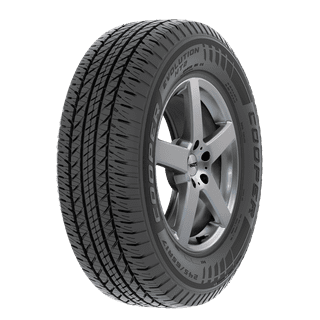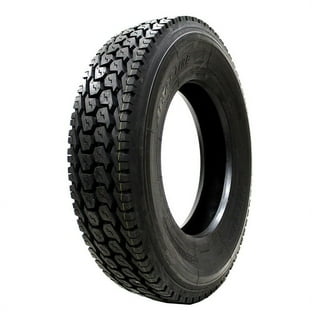Count On Morris Tire and Alignment for Specialist Service and Care
Count On Morris Tire and Alignment for Specialist Service and Care
Blog Article
Tire Solution: Recognizing Tire Stress Monitoring Solutions
Understanding Tire Stress Surveillance Solutions (TPMS) is an essential facet of keeping optimum vehicle efficiency and security when driving. With improvements in vehicle modern technology, TPMS has actually become a basic function in modern-day lorries, offering real-time information on tire stress degrees. Delving deeper right into the complexities of TPMS, one can reveal the numerous parts that compose this system and the significance of each in ensuring accurate monitoring. From straight to indirect TPMS systems, the landscape of tire stress tracking is diverse, each with its unique set of factors to consider and benefits. Stay tuned to decipher the complexities of TPMS, from maintenance tips to the undeniable advantages of maintaining your tires correctly pumped up. mopar tire service specials.

Significance of TPMS
The significance of Tire Pressure Monitoring Solutions (TPMS) depends on their ability to enhance automobile security and efficiency with real-time monitoring of tire pressure levels. Keeping the right tire stress is crucial for guaranteeing optimal handling, braking, and overall security of a lorry. TPMS supplies chauffeurs with prompt comments on any type of underinflated or overinflated tires, enabling for prompt modifications to be made.
Elements of TPMS
Sensors are generally located in the tire shutoff stem or connected to the wheel setting up, where they determine tire pressure and transmit information to the control component. Some advanced TPMS models additionally show the real tire pressure analyses for each tire, supplying vehicle drivers with real-time details to make sure ideal tire performance and safety. By monitoring tire pressure continually, TPMS helps protect against crashes, reduces tire wear, and improves fuel efficiency, making it an essential part for vehicle safety and efficiency. morris tire and alignment.
Types of TPMS

On the various other hand, indirect TPMS counts on the lorry's wheel rate sensing units to monitor tire pressure. This system discovers underinflation by comparing the rotational rates of the wheels. Indirect TPMS is much less pricey than straight TPMS, as it uses existing sensors within the automobile.
While straight TPMS uses a lot more accurate readings, indirect TPMS is easier in layout and typically requires less maintenance. Both systems have their advantages and limitations, and the selection in between them usually relies on variables such as cost, vehicle make, and personal preference. Comprehending the differences between these two kinds of TPMS can aid vehicle owners make educated decisions regarding tire upkeep and safety.
TPMS Upkeep Tips
Efficient maintenance of TPMS is necessary for making sure ideal efficiency and security of your car. Consistently evaluating the TPMS sensing units for any kind of damages or deterioration is important. Make sure that the sensors are cost-free and tidy from debris that could interfere with their functioning. In addition, it is recommended to check the sensing unit batteries regularly and replace them as needed to ensure accurate readings. Conduct routine look at the tire pressure levels and contrast them with the TPMS readings to guarantee they correspond. Alter the system adhering to the producer's standards if there are any kind of disparities. Additionally, during tire rotation or substitute, make certain that the TPMS elements are dealt with very carefully to stop any type Get More Info of potential damages. Lastly, if the TPMS cautioning light illuminates on the control panel, deal with the concern immediately by checking the tire stress and the overall system for any kind of faults. By sticking to these upkeep ideas, you can prolong the life expectancy of your TPMS and improve the safety and security of your driving experience.
Benefits of Proper Tire Stress
Preserving appropriate tire pressure, as highlighted in TPMS Upkeep Tips, is crucial for enjoying the countless advantages related to optimum tire stress levels. One of the key advantages of maintaining the appropriate tire stress is boosted fuel effectiveness. When tires are effectively inflated, there is much less rolling resistance, causing much better fuel economy. Furthermore, proper tire stress makes sure even tire wear, prolonging the life-span of weblink the tires and promoting more secure driving conditions. With the appropriate tire stress, vehicles additionally have much better handling and traction, specifically in adverse climate conditions. This can enhance total driving efficiency and safety for the chauffeur and travelers. Moreover, keeping optimum tire stress can contribute to a smoother and extra comfortable adventure by reducing vibrations and noise brought on by underinflated tires. Finally, the advantages of correct tire pressure surpass simply tire longevity; they incorporate enhanced gas performance, enhanced security, much better lorry efficiency, and overall driving comfort.
Final Thought
In final thought, understanding tire pressure surveillance systems (TPMS) is crucial for keeping ideal tire pressure and making sure lorry safety and security. By identifying the value of TPMS, knowing with its parts, recognizing the various types readily available, sticking to proper upkeep pointers, and recognizing the advantages of preserving appropriate tire stress, motorists can enhance their driving experience and lengthen the life-span of their tires. Proper tire pressure is vital to effective and risk-free lorry operation.

Report this page